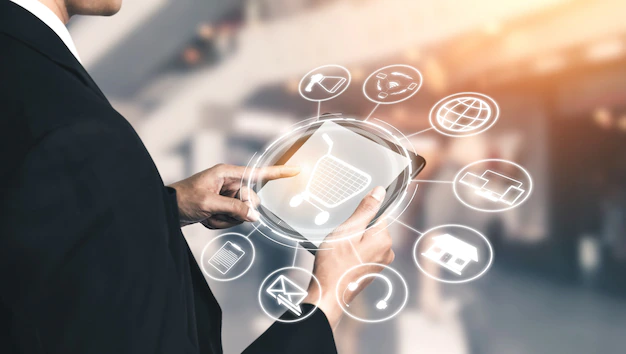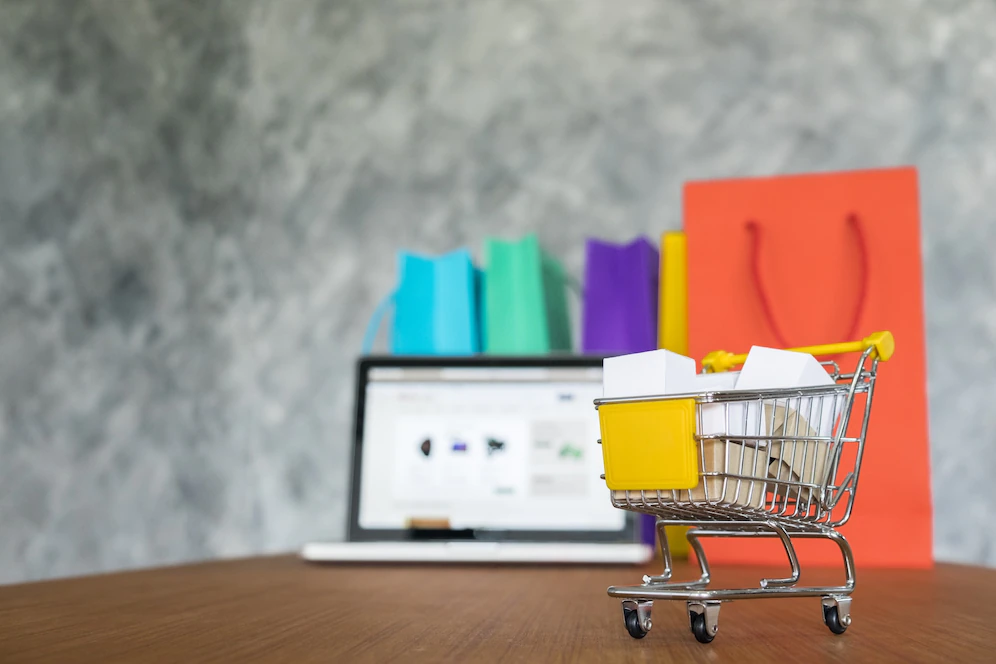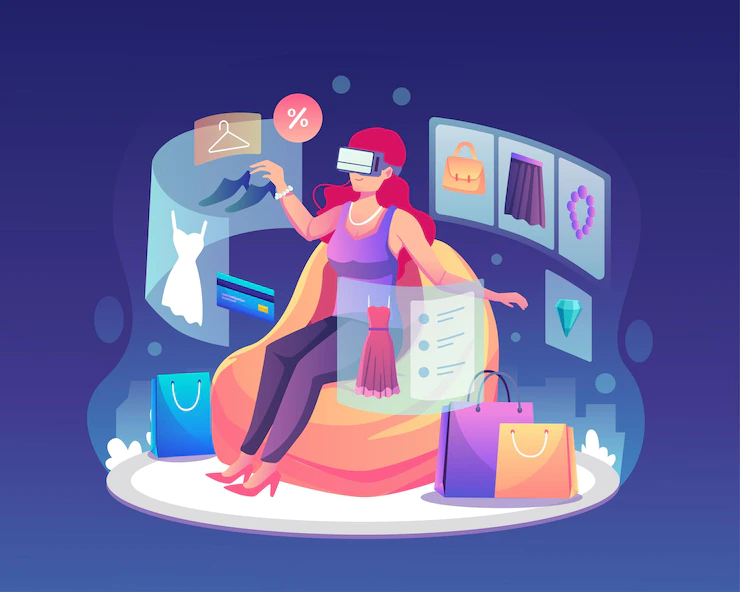Introduction
“We will be spending at least an hour a day in the metaverse by 2026” – states a report by Gartner. A few years back, virtual worlds were seen as absurd, but now they will soon become an irrefutable part of everyone’s life.
More than individuals, it is essential for the brands and retail industry to look forward into the rapidly growing virtual worlds. The metaverse is the newest possibility for brands to reach, connect and create relationships with a new set of audiences.
The same report by Gartner has also predicted that by 2026, 30% of the organisations in the world will have products and services ready for the metaverse. Many retail businesses are keenly unlocking various contemporary opportunities in the metaverse, as it has become crucial for businesses to produce a cohesive customer experience by bridging physical and digital worlds.
The metaverse is a virtual world in a virtual universe where people can communicate, engage, play, and work by creating their avatar. The base of the metaverse is immersive technologies and experiences, which refers to the real-time digital 3D and photorealistic environments, people and things which users can experience as an entire world.
Retail in the physical world can be defined as a market or a marketplace where businesses can connect with their audience. Similarly, retail in the metaverse can be a virtual place where users can explore, buy or replace goods/services provided by the businesses.
So to thrive in the rapidly evolving digital world, retailers must digitalise, innovate and offer the best user and customer experience in both the physical and digital world, as well as opportunities to switch between the two worlds easily.
How can the retail industry evolve with the metaverse?
Retail as an industry has evolved a lot. From buying products in a barter system, street-side shops, and marketplaces to shopping malls, online shopping, digital marketplaces, and now shopping in the virtual world, the transition has been enormous.
One of the significant transitions in the retail businesses happened when shopping malls became a well-established culture. Retail has become a marketplace where audiences explore, experience, buy, use, manage, and replace goods and services. From buying and purchasing the products/services, it evolved into shopping.
With shopping, customers become more informed about what they want as they have the chance to get information on the product/services, experience them and decide whether to make a purchase or not. As this phase prolonged, to make the shopping wholesome and enrich the shopping experiences, shopping malls started including other fun and entertainment elements into them.
When E-commerce and online shopping came into the market, it once again started changing the definition of retail. From a situation where customers had to go in search of products, online shopping changed it and gave the liberty of buying the desired products/services from the place of existence.
Though online shopping and e-commerce were successful, they couldn’t replace the shopping mall culture, as they couldn’t provide the real-time user experience, that the audience had been used to with malls. And the metaverse is the best solution to fill this gap.

With the metaverse, retailers can provide their audience with the similar experience of a real-world mall, where users can converse, play, exchange content, discover, engage with brands, and make purchases virtually.
So when simply put, the metaverse and retail will be a new virtual experience, where businesses can connect with users to provide experience and build community; and help the audience discover and buy products/services according to their desires.
Currently, businesses are leveraging the metaverse mainly to establish their branding expression in the virtual world. Its primary purpose is marketing, which means businesses enter the virtual world to connect with the audience, aiming to persuade them to buy their physical product.
For this, businesses are partnering with already established virtual worlds like Meta horizon world, Sandbox and Decentraland, where they rent spaces to showcase their products/services or join with virtual games to build a connection with their target audience.
To know more about the metaverse and the virtual worlds, check out another blog on ‘what is the metaverse?’
Most businesses are present in the metaverse as NFTs and digital products now. But in the near future, it can evolve. Retailers can produce and sell digitally usable products/services, like fashion products – dresses or lifestyle products for avatars. Or there can be combined physical and virtual sales, like purchasing a digital twin that can be an exclusive virtual collection in the metaverse, which can be delivered as a physical product later in the real world.
Five widespread benefits for retailers in the metaverse
1. Connect with Gen Z and Gen Alpha
The metaverse is the suitable space to connect with the upcoming generations of customers: Gen Z (15-27 years) and Gen Alpha (0-15 years). These two generations will be the natives of the virtual universe and meta worlds, who will be using these platforms to socialise and explore.
2. Early entry can help expertise
By entering the virtual worlds at the early stage, retailers can evolve with the technology, and when it starts to flourish, they can become key players and experts.
3. NFTs and Digital Twins
Retailers can create a digital twin of the exclusive collections of their products and create NFTs. If the NFTs get sold, retailers can make huge revenues from them.
4. Marketing via gaming worlds
Retailers can leverage gaming worlds where they can indulge in in-game advertising or do product placements. This can be a great marketing medium.
5. Phygital (physical + digital) medium
Retailers can build a combined medium where they can integrate and create a sales channel between the physical and digital world. It is similar to the revised digital twin technology, retailers can have an exclusive virtual product collection, and when it is sold, a look-like physical product can be delivered.
How can DMG support retail businesses to establish their presence in the metaverse?
At DMG, we have been working with businesses as their consulting and strategising partners. We develop a detailed plan on how retailers can smoothly develop their business into the metaverse and gradually work on connecting with the targets.
So DMG has a defined process of strategising a plan for its clients. First, we would study the product/service of the client and define their target audience. Secondly, we will develop a competitor analysis and foresee spaces where the target audience can be reached effectively.
Next, we will decide on the applications, technologies and virtual properties with which we can enter into the metaverse. And finally, we will plan the retailer’s entry into the metaverse and strategise how retailers can smoothly reach their brand identity to the metaverse audience.
Some of the top solutions that DMG can support the retailers with getting into the metaverse are:
- Virtual Reality - We have an expert team who can help retailers with designing their 3D worlds, environments and immersive content
- 3D Visualisation - When it comes to 3D visualisation, DMG is an ideal service provider for retailers to create their virtual properties and digital twin of their available physical products.
- Design - We can also support retailers in designing virtual games and simulations, which will help them provide a completely immersive experience to the users.
Is it the right time to transition the retail business to metaverse?
It is important for businesses to take a right leaping step at the right time to leverage the technology to grow their businesses steadily. Now in the post-pandemic era, humans are becoming more dependent on the internet and technology, and they are moving towards a virtual and digital lifestyle.

Whether it is massively multiplayer game worlds, creating and holding NFTs, buying virtual lands or trading Cryptos, users today have diverse mediums to express and build connections. The future of communication and socialising is undoubtedly the virtual worlds. Influencers, arts, currencies, ownership, trending, product, showrooms, clothing, games, sneakers and a lot more have already established their virtual presence.
Hence this is the golden time for retailers to enter into the virtual world. As the virtual universe is in the budding stage, retailers can evolve simultaneously with the technology and medium.
Now that you know it is the right time to shape your business in the virtual world, Are you ready?
While it is important to build the retail business in the metaverse as early as possible, the way you choose to establish your businesses is also equally important. Though it sounds like a simple process, it requires hefty planning and strategising. The process comes with many sub-tasks, which might be overwhelming or confusing to the retailers.
But all these challenges can be overcome with expert partners who can guide your business to reach the virtual world. At DMG, we ideate and strategise a stable plan which will help retailers successfully transition their business into the metaverse.
DMG has many years of experience in the field of 3D and immersive experiences and has supported businesses in creating enriching 3D, AR, VR, and animation content. The DMG team can provide the best state-of-the-art digital innovation solutions for retail businesses to take their business into the metaverse successfully.
Along with consultation and strategising, we have an expert team and ecosystem to create and build all the necessary virtual properties, products and services that retailers need to establish their business in virtual worlds.
Mail us your ideas and concepts on taking your business into the metaverse, and wait for us to get back with ideations! Together let us build your business in the virtual world.
